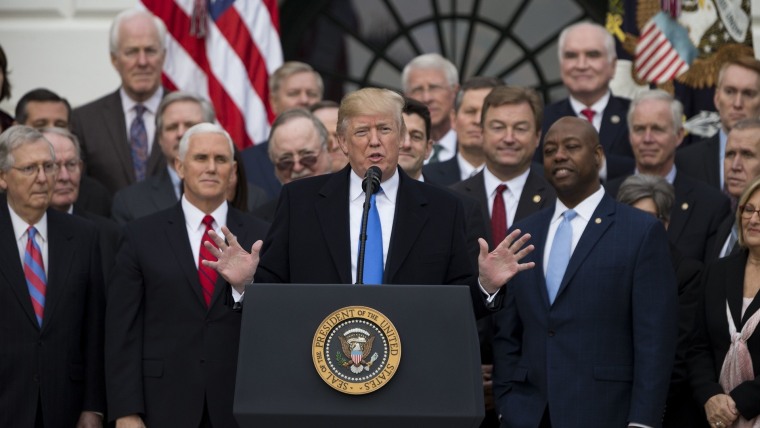In William Shakespeare’s “Henry VI, Part 2,” Jack Cade is the vicious leader of a populist rebellion against the king, and Dick the Butcher is his chief lieutenant. It is the latter who utters the famous line setting the rebels’ priority once they gain political power: “The first thing we do, let’s kill all the lawyers.”
That line is widely misunderstood today as expressing frustration with legalese and lawyerly nitpicking. But Shakespeare put this line in the mouth of a conspirator who thought that they could bring about a world of chaos and anarchy, unbounded by decent norms of civilized behavior. As the late Supreme Court Justice John Paul Stevens observed, “Shakespeare insightfully realized that disposing of lawyers is a step in the direction of a totalitarian form of government.”
Yet to judge from House Speaker Mike Johnson and House Judiciary Chairman Jim Jordan’s actions, these two men, despite their backgrounds in the law, would have sided with Shakespeare’s scoundrels.
Public servants with legal training, especially those in Congress, should be the most zealous defenders of the institutions of law.
Johnson is, at least nominally, a lawyer. Jordan holds a law degree and heads a committee that proudly proclaims its “jurisdiction over matters relating to the administration of justice in federal courts, administrative bodies, and law enforcement agencies.” They bear a special responsibility to preserve and protect the institutions that are at the core of a society governed by the rule of law.
Public servants with legal training, especially those in Congress, should be the most zealous defenders of the institutions of law, including the courts and the agencies sworn to enforce the law against those who threaten our civil liberties and governmental institutions. These instruments of public order, including judges, prosecutors and criminal investigators such as the FBI, ought to rank high in the pantheon of institutions that such politicians should be bolstering.
The American Bar Association’s standards for conduct emphasize that a lawyer is “an officer of the legal system and a public citizen having special responsibility for the quality of justice.” Specifically, these standards of professional conduct direct:
A lawyer should demonstrate respect for the legal system and for those who serve it, including judges, other lawyers and public officials. While it is a lawyer’s duty, when necessary, to challenge the rectitude of official action, it is also a lawyer’s duty to uphold legal process.
But as most recently demonstrated by their reactions to Donald Trump’s Manhattan trial, Johnson and Jordan are among the ringleaders in the cabal attempting to undermine public respect for institutions of the legal system.

Last month, Johnson led a delegation of his compatriots to show disdain for the judge and jury in the trial, in which Trump was subsequently convicted on 34 felony counts of fraud. He echoed Trump’s attacks not only on the verdict, but more importantly on the integrity of the process. He repeated the baseless canard that the whole prosecution in the name of the People of the State of New York was orchestrated from Washington as a form of election interference commissioned by President Joe Biden.
On Tuesday, he announced a tripartite package of assaults not only on the Justice Department, but also on other prosecutors around the country who have the temerity to investigate Trump.
The Johnson-Jordan campaign of undermining trust in the legal system betrays both of their responsibilities as public officials.
Jordan has functioned as conspiracy-theorist-in-chief, routinely accusing the Justice Department, including Attorney General Merrick Garland and special counsel Jack Smith, of “weaponizing” the forces of law to “get” Trump. The FBI is a special target. In his latest broadside, Jordan has demanded cuts in appropriations in order to starve prosecutions that he opposes, and he wants to postpone or kill the plan for a new FBI headquarters until the bureau becomes more pliant.
Belatedly, at a Judiciary Committee oversight hearing on Tuesday, Garland fought back, characterizing as ridiculous some of Jordan’s most outlandish claims. But the effect of years of drumbeat attacks launched by politicians who know better is palpable. Their false accusations contribute substantially to the dramatic and corrosive decline of public faith in the judicial system. Recent surveys show, for example, that only a quarter of Americans express confidence in the Supreme Court. Judges throughout the system sense that their role is increasingly viewed with suspicion.
Beyond the courtroom, the public’s traditional respect for the Department of Justice and the FBI has reversed. As many Americans view these essential participants in the system negatively as do positively. This ratio is even more skeptically unbalanced for Republicans, who are more likely to be influenced by the likes of Johnson, Jordan and their cronies, including of course Trump.
Whether by design or ignorance, the Johnson-Jordan campaign of undermining trust in the legal system betrays both their responsibilities as public officials and their backgrounds in the law. It is time for them to realize that totalitarianism can happen here, and the destruction of confidence in the judicial system is an essential stop on that road. If they can’t bring themselves to cross Trump by vouching for the American legal process, they at least should clam up.
